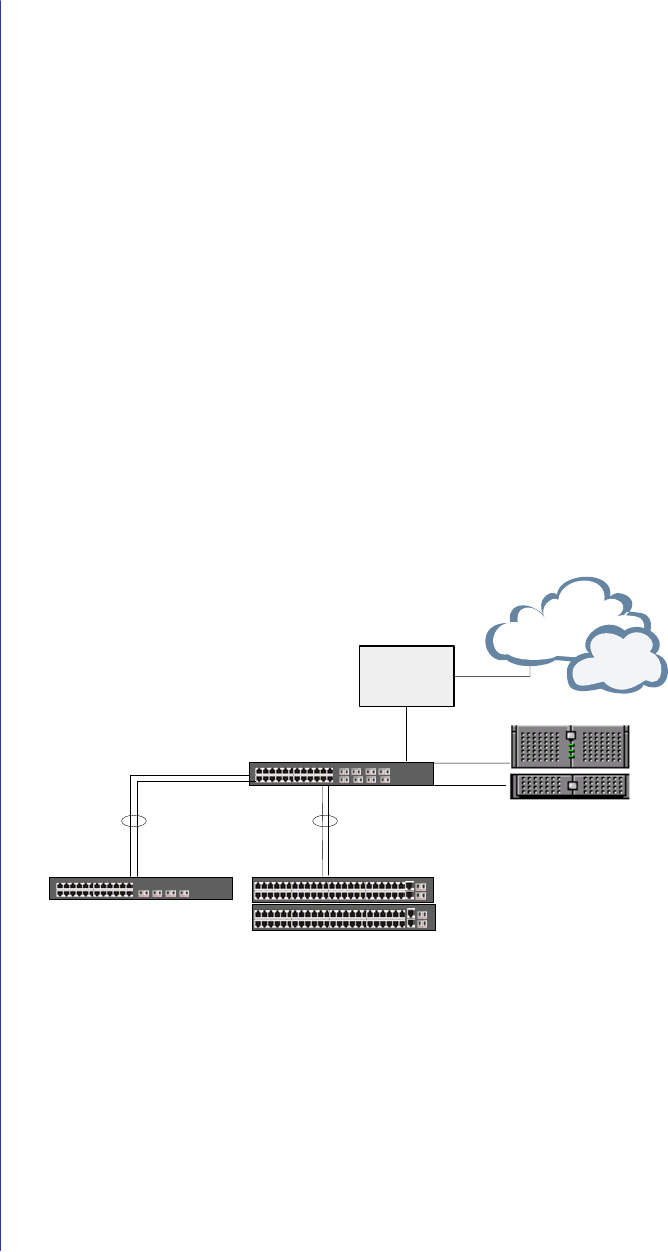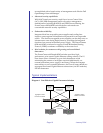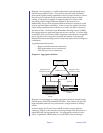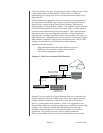
Page 12 January 2004
switch all packets to the core. Data leaving the stack of Edge Switch 1 with
a destination address at Edge Switch 2 would not have to take the
additional hops of going to the core of the network and then back out to
Edge Switch 2.
In this scenario, the aggregation switch can actually run multiple links to
the network core and to the edge switches to provide faster connectivity.
Edge Switch 1 consists of three stacked PowerConnect 3348s that are
linked together via their stacking modules. One uplink is connected to the
first PowerConnect 6024F at the top of the stack, while a second uplink is
connected to the redundant PowerConnect 6024 F. This creates multiple
data paths to the core, providing high availability of the network data.
Edge Switch 2 is similar except the switches are cascaded to each other via
their Gigabit ports. Multiple Spanning Tree protocol on the PowerConnect
6024 switches is enabled to help prevent a broadcast storm. RIP or OSPF
routing can be enabled to route data between these subnets.
Application benefits include:
- High bandwidth network from the desktop to the core
- Resilient and cost-effective wiring closet solutions
- Cost-effective aggregation solution
Diagram 3. Mini-Core or Remote Office Solution
Switch 1
PowerConnect 5224
Switch 2 & 3
PowerConnect 3348
Mini-Core / Remote
PowerConnect 6024
2Gbps LAG
(Trunk A)
2Gbps LAG
(Trunk B)
WAN Router
Firewall
Servers
Diagram 3 is an example of a Gigabit Ethernet mini-core or remote office
solution designed using the PowerConnect 6024. This solution provides
Gigabit Ethernet connectivity to the local servers and WAN/firewall
devices. Uplink trunks from switches 1, 2 and 3 are aggregated to the
PowerConnect 6024, thus providing a high speed connection from the edge
switches. This solution provides both high-performance and high
reliability while offering Layer 3 routing functionality in a mini-core
application. The solution can easily scale by adding additional
PowerConnect 6024 switches to create a redundant mini-core network.
















